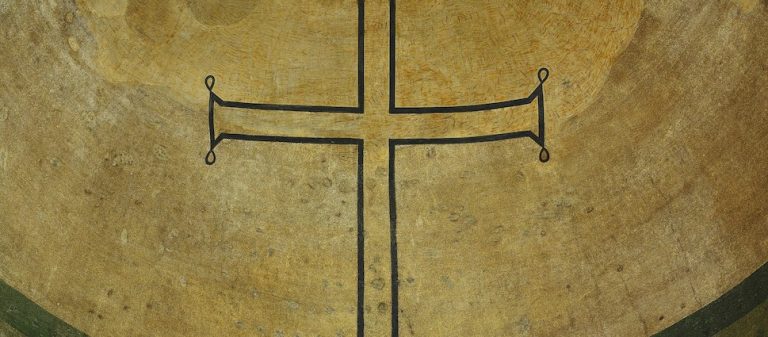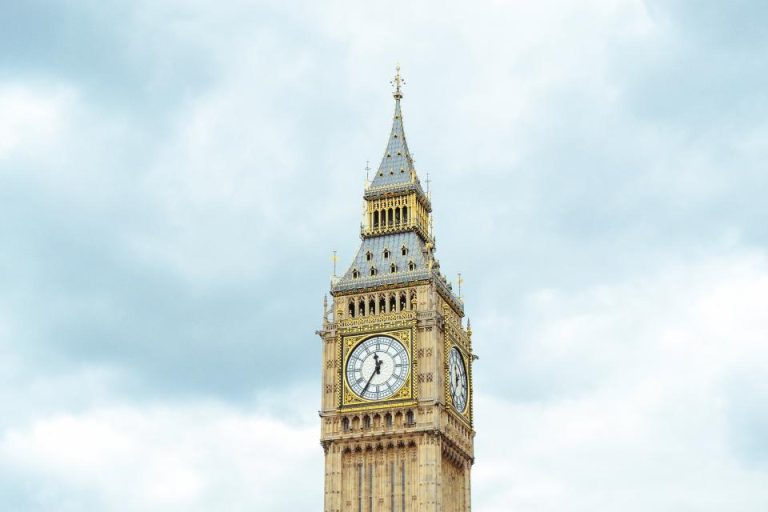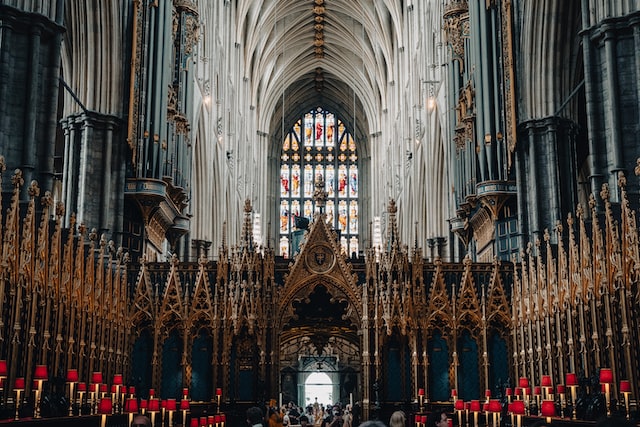
The Rule and Songs of Puritan Worship
When we build on the foundation of the Gospel in our worhsip, what rule should govern our building? By “rule” I mean what controls, regulates, and fills what we say and do in worship. Again, to appreciate the Puritan stance on the rule of worship, we must begin not with the Puritans but with the Reformation. Though Luther had allowed practices to remain in the church so long as they did not seem to contradict the Bible, the Reformed movement taught that worship must only include that which the Word of God authorizes and warrants.
Worship is service given to the King of kings for His pleasure and honor. Christ alone is King of the Church; all our worship is obedience to His Word. Calvin taught that the Church has one King, our Savior Jesus Christ, and He is “the sole lawgiver of his own worship.”[i] For the Puritans, too, cleaving to Christ as our Lord means submitting to the rule of His Word in our worship, and opposing humanly-devised worship.[ii]
This idea today is called the regulative principle. Robert Godfrey writes, “In its simplest terms the regulative principle holds that the Word of God alone regulates, directs, and warrants all elements of worship. . . . We may worship God only as he has commanded us to do in the Bible.”[iii] As the Puritans saw it, the basic form of biblical worship was three-fold: Word, sacraments, and prayer. Each of the three elements can be divided into two parts: the Word (read and preached), the sacraments (baptism and the Lord’s Supper), and prayer (spoken and sung).[iv]
The Puritans found the regulative principle taught throughout Scripture. Christ said to the Samaritans in John 4:22, “Ye worship ye know not what.” God repeatedly told Moses that he must build the tabernacle according to the pattern revealed to him (Ex. 25:9; etc.). Hildersham concluded that no one can know or serve God rightly “without the direction of his Word.”[v] Burroughs similarly noted how in Exodus 39 the text repeatedly says that they built the tabernacle exactly as God commanded.[vi] Hildersham concluded, “See how precise God would have us to be in sticking close to the direction of his Word, in the matter of his worship. Yea it is certain, when we do him any service that he hath not appointed us in his Word, we serve not him, but we serve an idol.”[vii] Perkins quoted Deuteronomy 12:32, “What thing soever I command you, observe to do it: thou shalt not add thereto, nor diminish from it.” To add or subtract from God’s instructions for worship, Perkins said, is to deny that the Holy Scriptures are “all sufficient” for doctrine and obedience.[viii] Numbers 15:39 and Ezekiel 20:18 warn us that in our worship we must not follow our own hearts or the ways of our fathers. Our Lord Jesus, in Matthew 15:9, quoted the words of Isaiah 29:13, to admonish us, “But in vain they do worship me, teaching for doctrines the commandments of men.” Paul taught us in Romans 12:12 that reasonable worship requires knowing God’s will.[ix]
At the bottom of the regulative principle is a profound sense of the holiness of God. The Lord killed two of Aaron’s sons for offering Him incense in a way He had not authorized. God’s word of explanation for their surprising death appears in Leviticus 10:3, “Among those who are near me I will be sanctified, and before all the people I will be glorified.” The Lord was saying that those who worship Him must do so in a manner that lets people know He is the holy God, indeed a consuming fire.[x] God’s holiness implies that we cannot approach Him in any way that we please. We must offer up to God only what He commanded.[xi] As John Owen (1618–1683), one of the greatest Puritan theologians, said, only God is the Judge of what pleases God.[xii]
So we might summarize the rule of Puritan worship in these words adapted from Owen’s writings:
What does God require of us so that by faith we glorify Him and He accepts us?
He requires that we worship Him in the ways that He appointed.
How does God make known to us these ways and means of worship?
He makes them known by the written Word of God alone, which is the full and perfect revelation of the will of God for His whole worship.
May the church add religious activities or images that help people worship?
No, because all acceptable worship is by faith, and faith always looks to the promises and laws God has given us through Jesus Christ.[xiii]
The regulative principle produced reverence and simplicity in Puritan worship. It also enabled them to focus on Christ instead of ceremonies and physical objects. Charnock said, “There is no need of a candle when the sun spreads its beams in the air; no need of those ceremonies when the Sun of righteousness appeared.”[xiv]
If the Bible alone was the rule of Puritan worship, then how did that shape what they actually did in their worship? The proper way of worshipping God is a rich and profitable subject for believers to consider. However, in our limited time, there is much I must pass over. Elsewhere I have addressed the Puritans’ strong emphasis on preaching. Nor can I speak here of the Puritan teaching on public prayer and on the sacraments—all of which were vital parts of Puritan worship. For the bigger picture, I recommend that you read the Westminster Directory for the Publick Worship of God.[xv]
However, I have been asked particularly to address this question: How did the regulative principle shape what the Puritans sang in public worship?
In obedience to Colossians 3:16, the Puritans employed an ancient form of worship largely forgotten in the modern church: singing the Book of the Psalms found in the Bible. The singing of psalms by monks and priests was the heart of the daily worship in the Middle Ages.[xvi] When Luther led the Reformation, he sent out a call for men to translate the psalms so that the common people could sing the Word of Christ.[xvii] When Calvin joined the Reformation in Geneva, the church there was not singing at all out of concern to avoid the professional performances of music in the medieval church. Calvin labored for years to convince the Genevan church to sing, and then implemented a plan of congregational singing of psalms without instrumental accompaniment. His aim was to focus attention on the words of the songs.[xviii] Based on 1 Corinthians 14:15 and Colossians 3:16, Calvin said that “we should sing with voice and heart,” and we should sing “spiritual songs” that edify the mind and kindle the heart with reverence and zeal toward God.[xix] Calvin quoted Augustine, “When we sing these songs . . . we are certain that God puts the words into our mouths as if he were singing in us to exalt his glory.”[xx]
Though some Reformed Christians continued to object to corporate singing in the church, the Puritans generally loved to sing the psalms.[xxi] William Ames (1576–1633), a very influential student of Perkins, wrote that singing the psalms has the following advantages over merely reading them: “it brings a kind of sweet delight to godly minds,” it enables “a more distinct and fixed meditation,” and it results in more “mutual edification.”[xxii]
John Cotton (1585–1652), an English Puritan who later immigrated to the American colonies, also believed that God willed for the church to sing the psalms or other songs found in Scripture such as the Song of Mary (Luke 1:46–55). He too argued that psalms should be sung without instrumental music.[xxiii] Privately composed hymns could also be sung and accompanied by musical instruments, but only in private worship, not public worship.[xxiv]
The crux of the Reformed and Puritan argument for singing the psalms of the Bible was Colossians 3:16, and the parallel statement in Ephesians 5:19, “Speaking to yourselves [or one another] in psalms and hymns and spiritual songs, singing and making melody in your heart to the Lord.” Cotton noted that these same words “psalms,” “hymns,” and “songs,” are “the very titles of the songs of David, as they are delivered to us by the Holy Ghost himself.”[xxv]
Some objected that the Holy Spirit leads men to compose “spiritual songs” in the contemporary church. Cotton replied that ordinary men led by the Spirit may err, but the prophets “carried by the Spirit” as they wrote the Scriptures “cannot err.”[xxvi] The Puritans believed that songs of mere human origin have their place, but “our devotion is best secured” when our songs come from “divine inspiration,” that is, the inspired Scriptures.[xxvii]
Since Paul linked singing the psalms to the filling of the Spirit (Eph. 5:18), Paul Baynes (c. 1573–1617), another mighty Puritan preacher, said that the exercise of singing the psalms is a means of increasing in ourselves the work of the Holy Spirit.[xxviii] However, Baynes said we should not object against singing with instruments such as the organ if it is done in a helpful way, for “we are expressly charged by God’s Spirit to praise him both on stringed instruments and organs (Ps. 150:4).”[xxix] Evidently some Puritans felt very strongly about not using instruments, for Baynes complained that one pipe in the organ could blow out their zeal, and blow them out of the church! So we see that there was at least some diversity among Puritans about musical instruments. But they were united in maintaining that the ordinary worship of the church should be the singing of the psalms and that musical instruments should not be used at all or kept to a minimum as incidentals to worship, since they are nowhere commanded in the New Testament.
Previous Posts in This Series:
– – – – – – –
[i] Calvin, Institutes, 4.10.23; cf. 4.10.1.
[ii] Perkins, Diuine Worship, 179; Horton Davies, The Worship of the American Puritans, 1629–1730 (New York: Peter Lang, 1990), 29.
[iii] W. Robert Godfrey, “Calvin, Worship, and the Sacraments,” in A Theological Guide to Calvin’s Institutes, ed. David W. Hall and Peter A. Lillback (Phillipsburg, N.J.: P & R Publishing, 2008), 371.
[iv] William Perkins, A Golden Chaine, or The Description of Theologie, Containing the Order of the Causes of Saluation and Damnation, according to Gods Word (London: Iohn Legate, 1597), 66–67; Burroughs, Gospel-Worship, 161; Hambrick-Stowe, The Practice of Piety, 93.
[v] Hildersam, Lectvres upon the Fovrth of Iohn, 154.
[vi] Burroughs, Gospel-Worship, 86.
[vii] Hildersam, Lectvres upon the Fovrth of Iohn, 155.
[viii] Perkins, A Golden Chaine, 62.
[ix] Perkins, Diuine Worship, 180.
[x] Burroughs, Gospel-Worship, 5–6, 18.
[xi] Burroughs, Gospel-Worship, 8.
[xii] John Owen, “The Nature and Beauty of Gospel Worship,” in Works, 9:72.
[xiii] Paraphrased from John Owen, A Brief Instruction in the Worship of God, Q. 1, 3, 14, in The Works of John Owen (repr., Edinburgh: Banner of Truth, 1965), 14:447–50, 467.
[xiv] Charnock, The Existence and Attributes of God, 1:283.
[xv] The Directory for the Publick Worship of God, in Westminster Confession of Faith (Glasgow: Free Presbyterian Publications, 1994), 369–94. See Stanley R. Hall, “The Westminster Directory and Reform of Worship,” in Calvin Studies VIII, ed. John H. Leith (Davidson, N.C.: Davidson College, 1996), 91–105.
[xvi] Andrew Hughes, “Psalter,” in Dictionary of the Middle Ages, 10:200; Reynolds, “Divine Office,” in Dictionary of the Middle Ages, 4:223; Hughes Oliphant Old and Robert Cathcart, “From Cassian to Cranmer: Singing the Psalms from Ancient Times until the Dawning of the Reformation,” in Sing a New Song: Recovering Psalm Singing for the Twenty-First Century, ed. Joel R. Beeke and Anthony T. Selvaggio (Grand Rapids: Reformation Heritage Books, 2010), 1–15.
[xvii] Martin Luther, letter to George Spalatin, 1523, in Luther’s Works, 49:68; cf. 35:254.
[xviii] Ross J. Miller, “Calvin’s Understanding of Psalm-Singing as a Means of Grace,” in Calvin Studies VI, ed. John H. Leith (Davidson, N.C.: Colloquium on Calvin Studies, 1992), 35–38.
[xix] Calvin, Institutes, 3.20.32. Cf. Charles Garside, Jr., The Origins of Calvin’s Theology of Music, Transactions of the American Philosophical Society, Vol. 69, Part 4 (Philadelphia: The American Philosophical Society, 1979), 10. Calvin also allowed for singing some prayers taken from the New Testament (p. 18).
[xx] Cited in Miller, “Calvin’s Understanding of Psalm-Singing as a Means of Grace,” 40.
[xxi] On the struggles over corporate singing, see Horton Davies, The Worship of the English Puritans (repr., Morgan, Penn.: Soli Deo Gloria, 1997), 168–74.
[xxii] William Ames, Conscience with the Power and Cases Thereof (London: by E. G. for I. Rothwell, T. Slater, L. Blacklock, 1643), 2:43.
[xxiii] John Cotton, Singing of Psalmes a Gospel-Ordinance (London: by M. S. for Hannah Allen, 1647), 2, 12, 15.
[xxiv] Cotton, Singing of Psalmes, 15. He also affirmed the singing of a portion of a Psalm (2 Chron. 5:13; 20:21), or, on special occasions, to compose a spiritual song made of “words of praise dispersed in several Psalms” (29).
[xxv] Cotton, Singing of Psalmes, 16.
[xxvi] Cotton, Singing of Psalmes, 19. Note that Cotton affirmed the inerrancy of Scripture.
[xxvii] John Owen, Thomas Manton, et al., preface to The Psalms of David in Meeter (1673), cited in Beeke and Jones, A Puritan Theology, 669.
[xxviii] Paul Bayne, An Entire Commentary vpon the VVhole Epistle of the Apostle Paul to the Ephesians (London: by M. F. for R. Milbourne and I. Bartlet, 1643), 633.
[xxix] Bayne, Ephesians, 634.
Joel Beeke (@JoelBeeke) is president and professor of Systematic Theology and Homiletics at Puritan Reformed Theological Seminary and one of the pastors of the Heritage Netherlands Reformed Congregation both in Grand Rapids, Michigan. He has written, co-authored, and edited over 80 books.
Related Links
Worship: The Chief End of Man (Quakertown Conference on Reformed Theology 2019)
“Worship and the Christian’s True Identity” by Jonathan Cruse
The God We Worship, edited by Jonathan Master
What Is the Lord’s Supper? by Richard Phillips
Reformation Worship Conference: Anthology
























